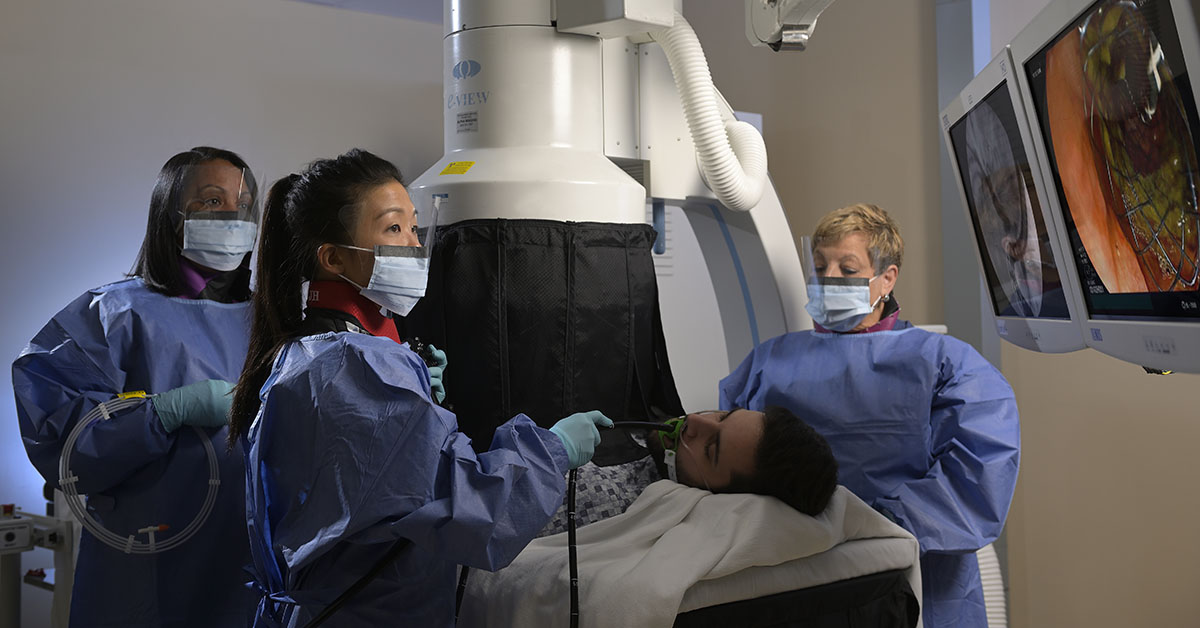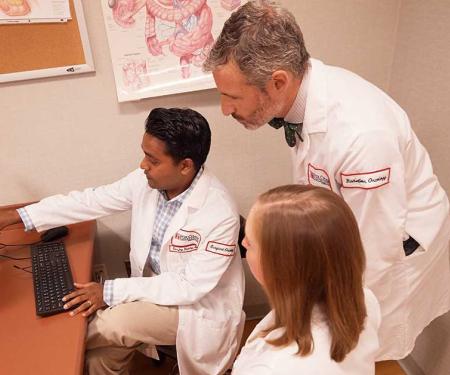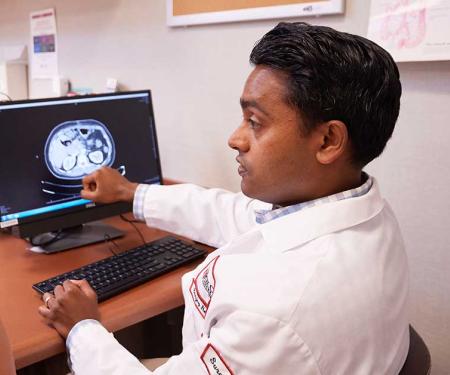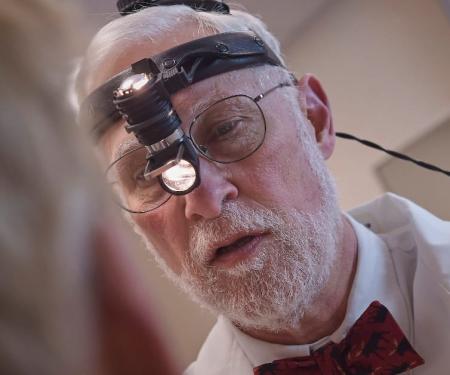Related Articles
00 / 00

Accurate diagnosis is crucial to developing the best plan for treating your type and stage of pancreatic cancer. Fox Chase radiologists and pathologists who specialize in pancreatic cancer will review all available tests and results to make an informed diagnosis.
There is currently no recommended routine screening to detect pancreatic cancer. If pancreatic cancer is suspected, our team commonly conducts the following tests to diagnose or rule out pancreatic cancer:
It usually takes at least a few days to receive a test report, although the time varies for each patient. Your physician will provide your test results as soon as possible, along with a thorough explanation and answers to any questions you have. At that time, your physician will recommend potential procedures and a treatment plan tailored to your diagnosis. If the quantity of tumor material is sufficient, your doctor will discuss a possibility to perform genetic testing of the tumor DNA to identify mutations that are present in the cancer cells.
If you have been diagnosed with pancreatic cancer, you most likely want to start treatment as soon as possible, but there’s merit in having someone else weigh in on your diagnosis and treatment options.
At Fox Chase, we routinely offer second opinions, which could help identify new treatment options that might be more effective for your condition. In fact, it is common to seek a second opinion in a cancer diagnosis; some insurance companies even require it.
Coming to Fox Chase also means you’ll likely have greater access to pancreatic cancer clinical trials appropriate for your condition. Our designation as a Comprehensive Cancer Center by the National Cancer Institute (NCI) means we are part of a network of research centers where hundreds of clinical trials take place every day. The results of studies conducted by Fox Chase doctors have been crucial in advancing our understanding of pancreatic cancer diagnosis and treatment around the world.
If you decide to seek a second opinion at Fox Chase, bring your medical records, imaging results, and pathology report, or have your physician forward them to us. (Your pathology report is the medical report that gives a diagnosis based on tests run on tissue samples.) Our nurse navigators will help you throughout this process. Our specialists will thoroughly review your pathology report, imaging, and medical history as they determine a diagnosis and recommended treatment plan.
When you come for your appointment, it may be helpful to bring a family member or friend who can help you understand and remember the information you receive.
Pancreatic cancer is categorized by the American Joint Committee on Cancer (AJCC) into five stages of development (Stage 0–IV), each indicating tumor size and how far the disease has spread. However, for pancreatic cancer, many doctors prefer to classify the cancer into four main groups, based on the results of imaging and other tests conducted before surgery. Our pancreatic cancer specialists also believe this classification is more appropriate to help determine the best course of treatment for you.
The four groups are classified as follows:
To design an individualized care and treatment plan, our pancreatic cancer team draws on the diverse experience of physicians in surgical oncology, medical oncology, radiation oncology, pathology, and gastroenterology, as well as other clinical staff. We work together to diagnose your cancer and help you make informed decisions about treatment.
Your dedicated team also includes nurse navigators, social workers, and other specialized support staff. As a key part of your team, they will provide emotional support and coping strategies for you and your family when you need them most. At Fox Chase, we take enormous pride in providing world-class care for our patients with pancreatic cancer.
“We set realistic expectations while also providing patients with the understanding that their care will be top-notch, regardless of where they are in their disease process. We empower them with knowledge about their disease, offer them access to the most advanced therapies available, and help reduce their burden of pain, stress, and uncertainty.”
— Igor Astsaturov, MD, PhD, Department of Hematology/Oncology and pancreatic cancer specialist









